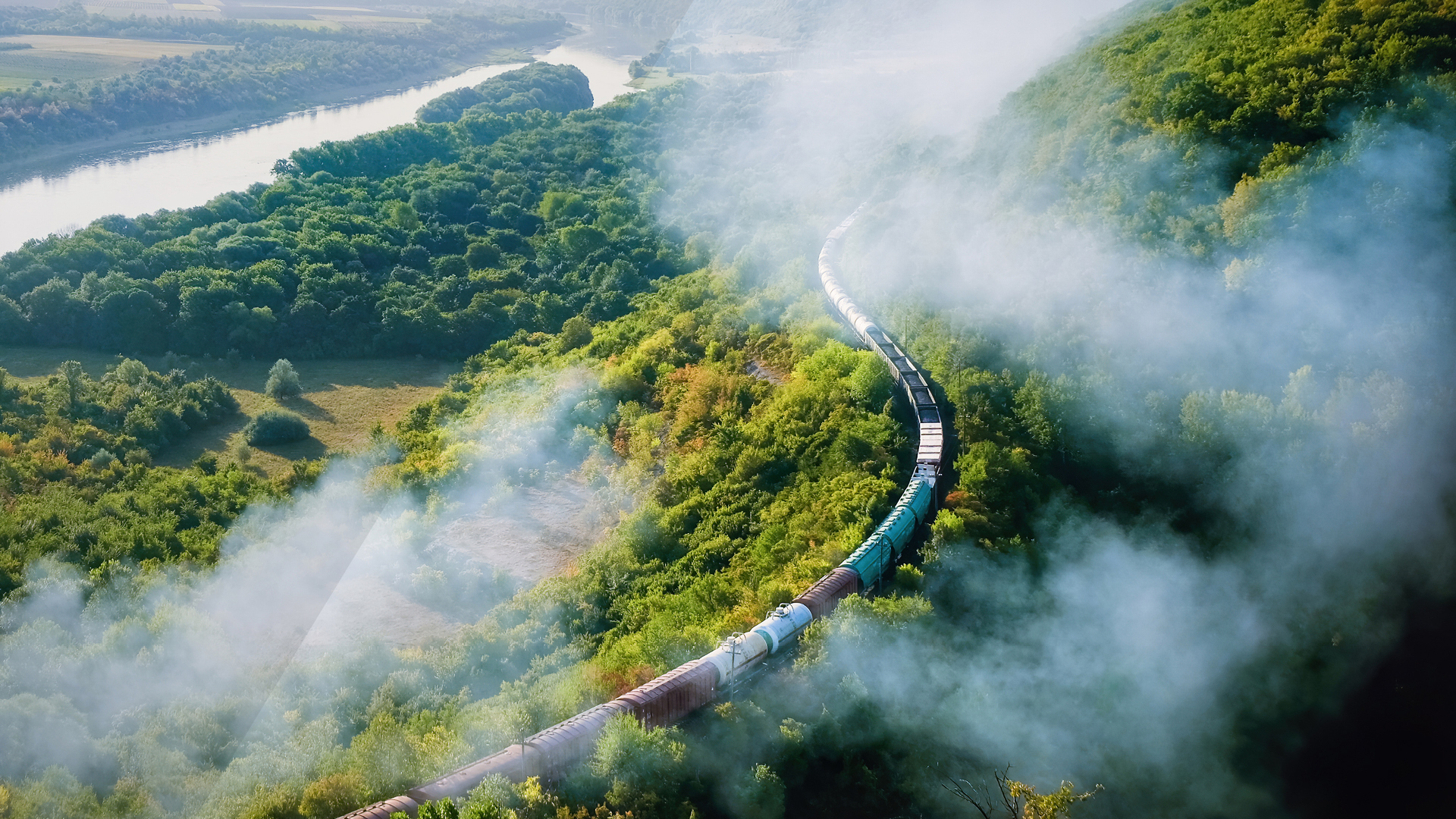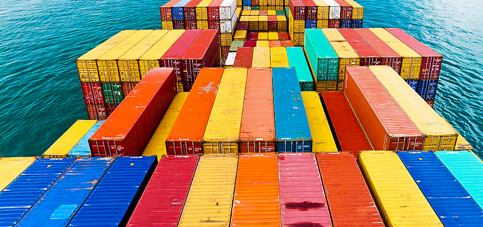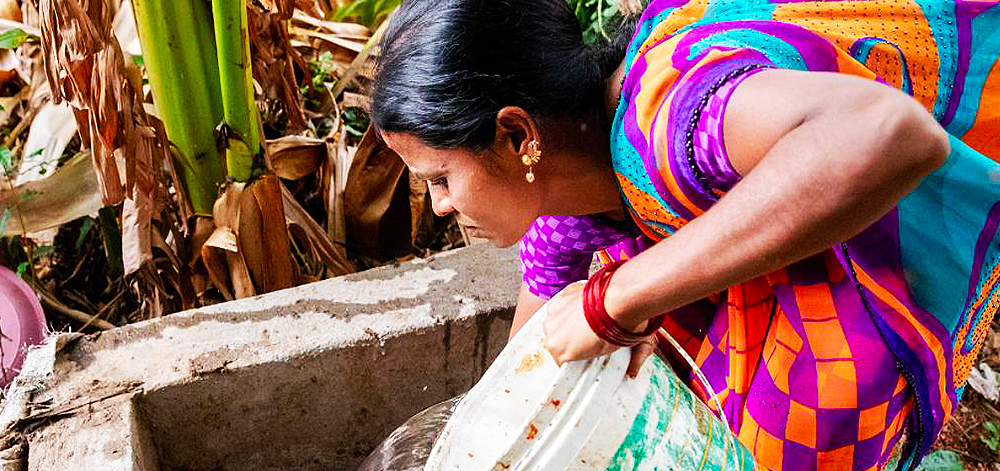Towards net zero
Climate and shipping

Our products are shipped globally and this has an environmental impact. We need to step up our efforts even further in reducing this impact. We do this with partners who calculate and reduce our environmental footprint. This involves facilitating fuel switches, exploring intermodal transportation and adopting low- or zero-emissions solutions. We aim to engage our customers by including carbon footprint information with each contract in order to grow awareness. All our initiatives are focused on achieving our ultimate ambition: a net-zero value chain.


BigMile
BigMile helps us calculate and analyse transport-related carbon emissions, for example, per shipment, trade lane, or customer. We had already calculated our emissions for sea freight. By partnering with BigMile in 2022, we were able to extend the calculations to cover all modalities, including pre- and on-carriage emissions. This partnership is a logical next step in giving our clients and other stakeholders even greater insight into the total carbon emissions of Meelunie products.

CarbonLeap
CarbonLeap helps us to eliminate our supply chain emissions by offering scalable carbon reductions across all modalities and geographies. We work together since 2022 to lower our footprint in our logistics operations and accelerate innovations in the voluntary carbon market. We do this by researching ways to increase the transparency of carbon emissions, insets and credits in our value chains. But also by researching other technologies of carbon reduction. When these alternatives are operational then we can act quickly as CarbonLeap operates independently.


FairClimateFund
FairClimateFund helps us in our mission to stay a carbon-neutral organisation by compensation and guides us in our journey to take more, and more effective, climate action. We partnered in 2019, to support underprivileged families with cleaner cookstoves in, for example, Laos. This leads to less smoke formation, protects biodiversity, supports local forests and reduce carbon emissions. These projects are Gold Standard and partly Fairtrade certified.
Q&A Climate and shipping
-
WHY DID MEELUNIE DEVELOP THE CO2 CALCULATOR?
To track our progress towards carbon-neutral transportation and supply chains. Previously there was no such tool available for a global supplier, so we took responsibility and created one for ourselves. We now have a strong partner in BigMile to calculate our emissions. One of our aims is to raise awareness, both internally and throughout our value chain. The key reasons for making these calculations are to gain insights into our shipping emissions and how to reduce our carbon footprint, and to see what we still need to compensate.
-
WHO IS MEELUNIE'S CO2 CALCULATOR PARTNER?
BigMile, who set the standard in CO2e calculation, reporting, analysing and optimisation. They offer visualisation of our supply chain emissions performance, progress and potential improvements. Major organisations such as CEVA Logistics, DHL and Port of Rotterdam also work with BigMile.
-
WHAT DOES THE BIGMILE CO2 CALCULATOR MEASURE?
All emissions (well-to-wheel) resulting from shipments that Meelunie handles for customers. This includes not only emissions from deep-sea shipping movements, but also our worldwide pre- and on-carriage by truck, train and barge.
-
HOW ARE EMISSIONS MEASURED?
In general, the following formula is used: Total emissions (in MT CO2e) = Activity (in tonne-km) x Emissions Intensity Factor (in kg CO2e per tonne-km). In this case, the activity being transportation. This follows the European Standard EN 16258, Global Logistics Emissions Council (GLEC) Framework, and Greenhouse Gas (GHG) Protocol: Corporate Accounting and Reporting Standard.
-
HAS THE CO2 CALCULATOR BEEN ACCREDITED?
Yes, by Smart Freight Centre.
-
WHAT TARGET HAS MEELUNIE SET IN TERMS OF CLIMATE & SHIPPING?
Our ultimate goal is a net-zero organisation and supply chain, but, because it is a long and bumpy road toward that end, our initial goal is to operate towards a carbon-neutral supply chain by 2030 and progress to a net-zero supply chain. We have already made the first steps in reducing and compensating for the CO2e emissions of our shipments. For example, we have fully reduced by fuel switch our Rotterdam to Shanghai trade lane. Additionally, we want to be transparent about our supply chain emissions by providing customers with information on where and how many CO2e emissions are emitted in our supply chain in 2022 and beyond. We want to raise awareness, which will hopefully be followed by steps by our supply chain partners to start reduction and compensation initiatives themselves. We will also facilitate such initiatives where necessary.
-
HOW IS MEELUNIE REDUCING CO2E EMISSIONS?
We are raising awareness amongst colleagues and supply chain partners about our emissions and how to reduce them. We have joined forces with CarbonLeap to decarbonise our value chains by replacing fossil fuels with sustainable alternatives.
-
HOW IS MEELUNIE COMPENSATING CO2E EMISSIONS?
Any emissions we can’t currently reduce, we compensate (offset). FairClimateFund is our partner here. Besides the carbon benefit, we also directly support households, enable carbon reduction and create a positive social impact. For example, we support FairClimateFund’s clean-cooking biogas projects in Laos.
-
HOW IS MEELUNIE COMMUNICATING ON EMISSIONS WITH CUSTOMERS?
Following each shipment, emissions are communicated via our customer portal. Our next step will be to share carbon statements with our customers, showing the emissions for their shipments and offering towards carbon-neutral solutions through reduction and/or compensation.
-
HOW CAN SUPPLIERS AND CUSTOMERS PLAY THEIR PART?
Through the reduction and compensation initiative, we hope to inspire our supply chain partners to start reducing and compensating emissions for their part of the value chain. Our goal is to engage all partners throughout the chain. Suppliers, carriers and customers can choose to participate and claim reductions and/or compensations themselves.
-
FOR MORE INFORMATION OR OTHER QUESTIONS…
If you have questions or suggestions, or want to join us on our sustainability journey, just email us at positiveimpact@meelunie.com.